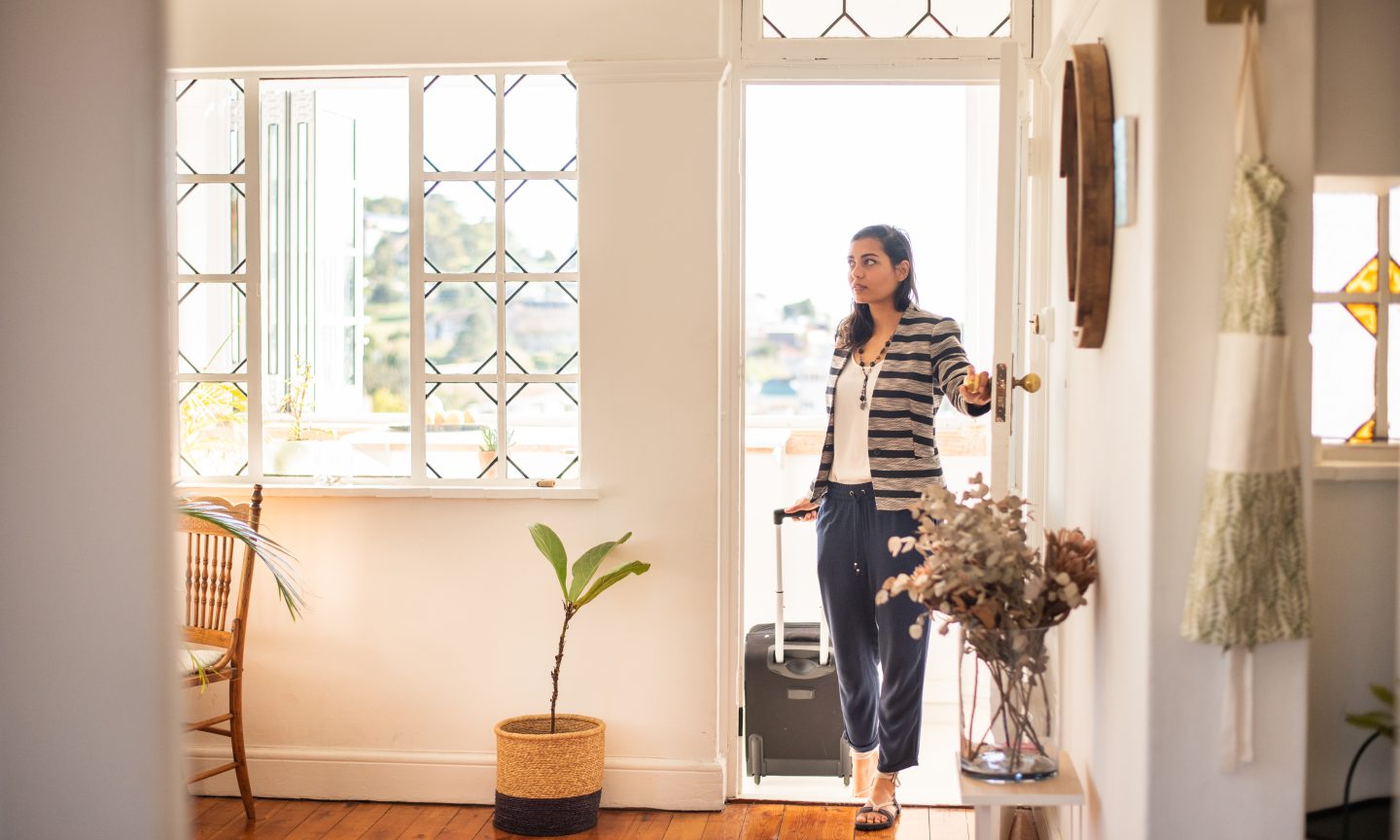If you’re trying to decide whether to stay in a hotel or rent an Airbnb on your next vacation, you may be wondering, “Is Airbnb safe?” “Is it protecting my information?” “Can I trust the host?”
Especially in regards to COVID-19, is a hotel a better option?
Here’s a breakdown of whether or not staying at an Airbnb is a safe option — pandemic included — and what you can do to help protect yourself and those around you when you travel.
How safe is Airbnb?
Airbnb is no longer a small, niche booking platform involving quirky stays in locals’ spare rooms (though that’s still an option, of course). Instead, it’s grown to a booking behemoth with some 2 million people reserving stays in homes every night in 100,000 cities and 191 countries. There are more than 6 million listings around the world: That’s more than the top five hotel chains combined, according to Airbnb.
The company states on its website that none of that would be possible without customers’ trust in the safety of their stays. So as you might expect, Airbnb has numerous safety guidelines in place to protect travelers, including:
-
Hosts and guests are run through regulatory, terrorist and sanctions watchlists, plus background checks are conducted in the U.S.
-
Hosts are offered a free smoke and carbon monoxide detector if they don’t already have them.
-
A secure payment and communication platform protects guests’ contact and payment information.
-
There’s multi-factor authentication when logging in from a new phone or computer, plus Airbnb will send account alerts when changes are made.
-
A global customer service team is available 24/7 to help with booking assistance, refunds, reimbursements, insurance and more.
This is all in an effort to keep guests and hosts as safe as possible. But what about safety concerns around COVID-19?
Is it safe to stay in an Airbnb during COVID-19?
Many travelers with COVID-19 concerns have preferred single-dwelling rentals in the past few years. And for good reason: Several medical professionals cited them as safer than hotels. After all, these sorts of stays often mean fewer common areas to navigate and little to no interaction with staff or other guests.
Plus, Airbnb set additional COVID-19 safety practices at the beginning of the pandemic. A five-step enhanced cleaning protocol is required for all hosts. This includes:
-
Ventilating the space between guests.
-
Using approved disinfectants.
-
Vacuuming and/or dusting before sanitizing.
-
Cleaning hard surfaces with soap and water.
-
Laundering on the highest heat setting possible.
-
Washing hands before cleaning and before replacing supplies and linens.
-
Not entering a room after it’s been cleaned.
Additionally, both guests and hosts are required to wear masks and social distance in common areas if local guidelines require it. They are also requested not to host or visit an Airbnb if testing positive or experiencing COVID-19 symptoms.
Airbnb says it will reprimand hosts who don’t adhere to these protocols with warnings, suspensions or account removal. However, the company will likely only find out through guest complaints, so it’s important for guests to report violations and share information in reviews.
That said, the Centers for Disease Control and Prevention states that those in close person-to-person contact with an infected person have a greater chance of infection. So if you eliminate the number of individuals you cross paths with during your stay — which is often a given in an Airbnb — your risk is greatly reduced, making Airbnb a potentially safer option than hotels when it comes to COVID-19.
Tips for staying safe during your next Airbnb stay
While Airbnb is a safe option for accommodation when traveling, there are plenty of things you can do to further protect yourself as you explore.
-
Never give your personal contact information to a host or pay outside of the platform. Always pay and communicate through the Airbnb website or app. This will protect your personal information through Airbnb’s multi-layer defense strategy.
-
Ask questions about listings before booking or arrival. This can help you get to know your host, ensure they are abiding by proper cleaning and COVID-19 safety protocols, and clarify any questions you might have about the stay, location, check-in process, etc. If something doesn’t feel right, don’t book.
-
Send your itinerary to a trusted person. If you’re traveling solo and nervous about it, tell a friend or family member where and when you’re going and share the listing with them.
-
Check the reviews for information about the host and home. Former guests will often offer feedback based on their own recent experience, including in regards to health and safety, which can inform and bring peace of mind.
-
Bring disinfecting spray or wipes. Use them when you arrive if you’re worried about thorough cleaning of high-touch points.
-
Book an entire place or a completely private room. If you’re worried about COVID-19 transmission, find a place with no shared entrances or spaces.
-
Book a stay with a flexible cancellation policy. If you decide not to travel due to the pandemic (or any other reason), you can cancel without losing all of your investment.
The bottom line
How safe is Airbnb? Whether it’s your personal information or health that you want to protect, Airbnb is as safe as staying in a hotel and can even, at times, be safer. There are enhanced cleaning protocols in place to help prevent disease transmission, there are secure messaging and payment platforms, and there’s plenty of opportunity to connect with hosts, read reviews and contact Airbnb if plans change.
How to maximize your rewards
You want a travel credit card that prioritizes what’s important to you. Here are our picks for the best travel credit cards of 2022, including those best for:
This post was originally published on Nerd Wallet



